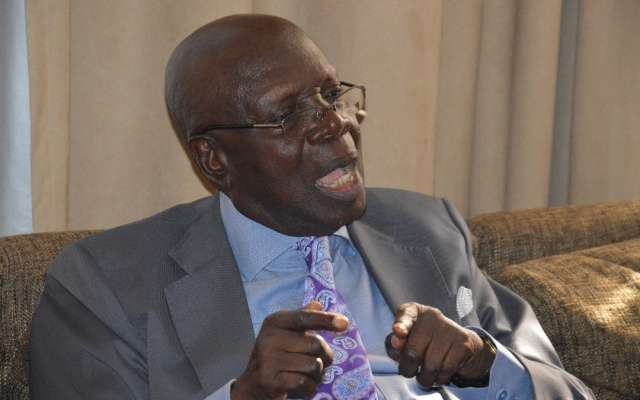
Economic gains risk decline from revenue shortfalls — Ishmael Yamson
The low domestic revenue mobilisation to finance economic growth risks leading the country into accumulating more debt, which can derail macroeconomic gains.
It could also force the government back to the International Monetary Fund (IMF) for support, a management consultant and Board Chairman of MTN Ghana Limited, Mr Ishmael Yamson, has told the Daily Graphic in Accra.
Advertisement
Beyond luring the country into debt, he said, the country’s inability to generate more revenue meant that it was constrained in how much it invested in the economy to help propel growth.
“It is a major issue and if we do not resolve it, the only recourse is for us to borrow, and that is where the challenge is,” he said in an interview.
Singling out revenue shortfalls as the biggest challenge facing the country at the moment, he said the government needed to be “strategic, rather than operational”.
Mr Yamson, however, ruled out the resort to increasing taxes in an attempt to generate more revenue, noting that “our tax levels are still high”.
Trend
The country is not new to revenue shortfalls.
A Ministry of Finance report, titled: ‘Fiscal Risk Statement 2018’ and published last March, showed that of the past 13 years, 11 years recorded lower revenue outcomes than budgeted.
It revealed further that the period registered an average forecast error of negative 10 per cent, implying that about 90 per cent of forecast tax revenue was likely to be collected.
Over the last three years, domestic revenue collections have been fewer than planned, with last year’s revenue of GH¢46.5 billion being almost four per cent below the budget target.
Population growth
Both the IMF and the World Bank agree that Ghana’s revenue collections, in the face of its economic productivity, are low, with the revenue to gross domestic product (GDP) ratio at 15.6 per cent (for 2018) showing that the country trails its peers in sub-Saharan Africa and those in the lower middle-income bracket.
The two bodies and the government admit that more revenue could be collected through taxes to fund development.
Mr Yamson, who chairs some four boards of companies, explained that the revenue nightmare was complicated by the strong growth in population.
That, he said, continued to put pressure on the government to provide more social amenities for the citizens.
He, therefore, called for a fine balance between efforts to mobilise more resources and those aimed at attracting investments and growing existing businesses, explaining that while revenue generation was key, it must not be done at the expense of private sector growth.
No tax increases
Mr Yamson, with over 40 years’ experience in the private sector, said the revenue situation required the government to take tough and hard core decisions to increase domestic resource mobilisation.
He mentioned the need to charge and collect realistic tariffs, avoid subsidies and spend prudently as some of the measures the government could adopt to help rein in expenditure and sustain the gains chalked up under the four-year extended credit facility (ECF) programme with the IMF which ended last month.
Strategic measures
He said the country was not being strategic in addressing the revenue issue. Instead, he said, it had focused on the operational side, such that the government often looked at adjusting taxes and changing the tax incentive regime in an attempt to grow revenue.
“The structural issues are that our manufacturing base is small and it is not growing as fast as it should; our agriculture is basic — we are not adding enough value to it — and our services are basic.
“Look at how long it has taken us to expand the Tema Port,” he asked, noting that the delay in expanding the port, which is a major revenue generator, showed the lack of strategy towards growing domestic resources.
Incentives regime
Mr Yamson also advised the government to tread cautiously with ongoing plans to review the incentives regime.
“Yes, it is true that many of the incentives and benefits were frivolous, but I do not think that all of them were not appropriate. It was the incentive system in the 2000s that gave us all these big hotels in the country,” he said.
Using the hospitality business as an example to make his point, he said although the incentive regime had yielded some appreciable results in that area, the country still lacked a hotel with a 1,000-seater capacity.
“So it affects our conference tourism. If, for instance, the United Nations wants to host a regional conference in Accra, we have to go to Cote d’Ivoire.
State of manufacturing
Touching on the manufacturing sub-sector, which contributes substantially to revenue generation, he said it was sad that it had been growing below its capacity over the years.
“How many big factories were set up over the last 10 years? I can count only a few, and why are we not attracting big manufacturing companies into Ghana?” he asked.
He blamed the development on poor public infrastructure, which he said had contributed in raising the cost of doing business in the country.




